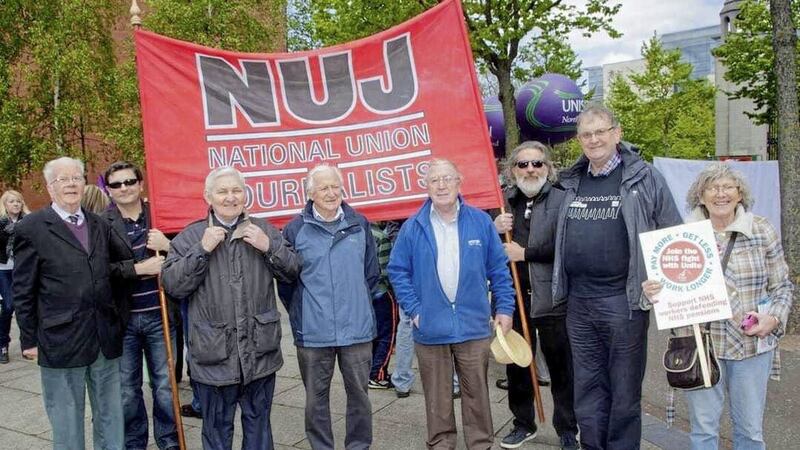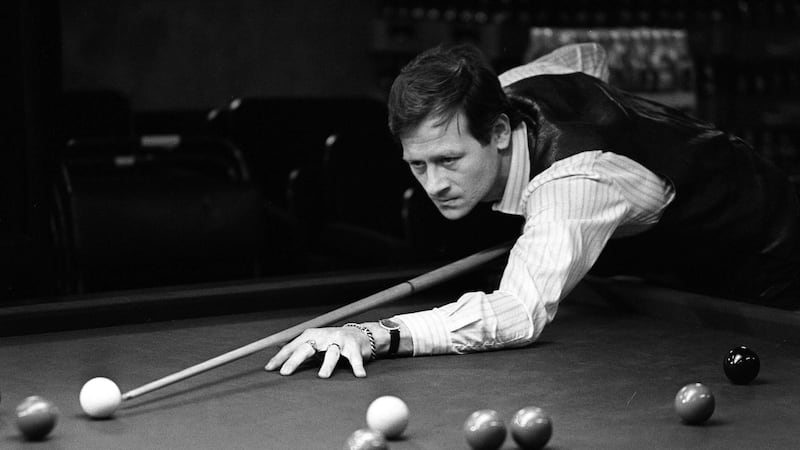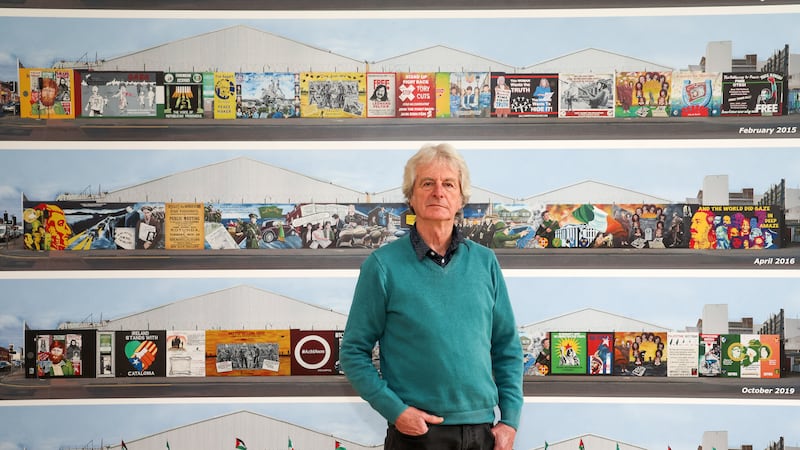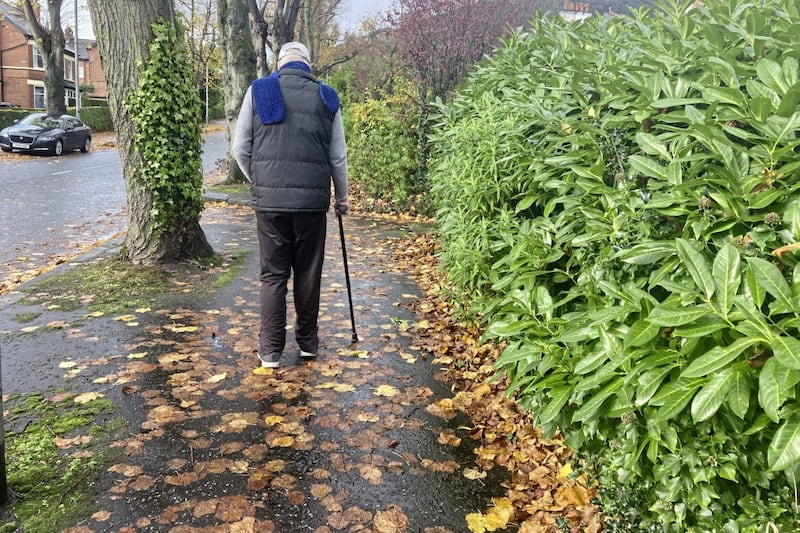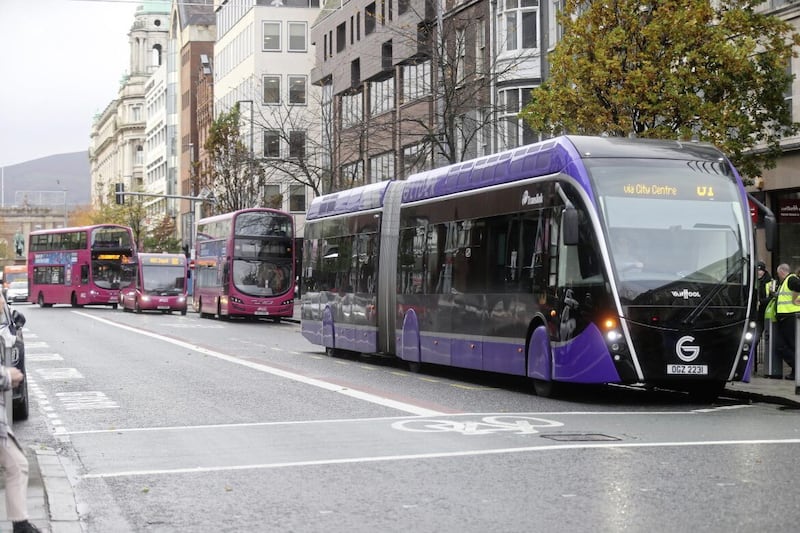WHEN you talk with veteran journalist Louis McConnell, he'll take you back over 70 years to a time when the newspaper industry in Northern Ireland was thriving. Every town had its own paper, and it was a time of ink, presses and bales of paper, words like 'slug', 'stone', 'flange' and 'lead', with no computerisation to speed the process.
Louis worked his way from provincial papers to city editions, from travel writing to broadcasting.
"One of the highlights was to be asked to do an RTE broadcast from backstage at Riverdance in the King's Hall nearly 30 years ago. An amazing night," he recalls – an occasion rivalled only, it seems, by the night he met his late wife Mona at a dance in the Orpheus Ballroom.
Born in Pomeroy, Co Tyrone, McConnell was only a teenager when his dad suggested he should get a job in a newspaper.
"Best advice I've ever had, journalism has taken me round the world and back," he says.
Proving that 'once a journalist always a journalist', even at 89, Louis is still researching and writing, gathering stories of people and events for the Media History Collection at the Dublin City University Library archive dedicated to preserving the history of communication in Ireland, especially the world of print and broadcasting.
"It's important to preserve this history for future generations," he says, "as well as today's journalists wanting to source specific material."
THE EARLY DAYS
It brings back memories for Louis. He went to school with country singer Philomena Begley, played in an accordion band before 60,000 people at Croke Park, had a fine singing voice and was a notable Irish dancer: having an interest in so many aspects of local life stood him in good stead when, at 17, he got a job at the Dungannon Observer.
Initially, he was a proofreader responsible for spotting grammatical errors, misspellings and fake facts before the copy moved on to the sub-editor for more scrutiny.
"Stories came in from all arts and parts and they were relevant to the locals: if John Maguire bought a new turf spade, it was in the paper with a picture of beaming John."
Progress was swift, he was moved to Magherafelt, transferred to Cookstown and then Armagh.
"I loved Armagh. There were seven reporters and we were kept busy in the ecclesiastical capital with two bishops, Catholic alongside Protestant.
"As a reporter I was covering everything that was going on, but sport was my special area – although you couldn't avoid politics. I remember riots in the 1960s when the police baton charged, it was the first time I saw blood running down a man's face."
It wasn't the last time. One of his regular dates was covering the courts.
"I didn't like matrimonial cases, I was young and embarrassed. Much more fun was the smuggling, cattle to cigarettes, alcohol to butter.
"Women would buy butter in the south and, before the customs men boarded the train at the border, they'd stuff it down the front of their skirts into their knickers. The train would be purposely held up for a while and, as the butter melted, it became obvious who the smugglers were."
Although it wasn't butter, in the 1940s my uncle had an arrangement with the driver of the Enterprise train who would conceal all sorts of things in his boiler suit, bringing them north to unload in Belfast. The poor driver must have been sweltered when he was required to strap a fur coat to his burly frame.
"The best of it was on the day the court sat in Newtownhamilton and the police and customs men were there giving evidence – we all knew the boys were out working away without having to worry about getting caught".
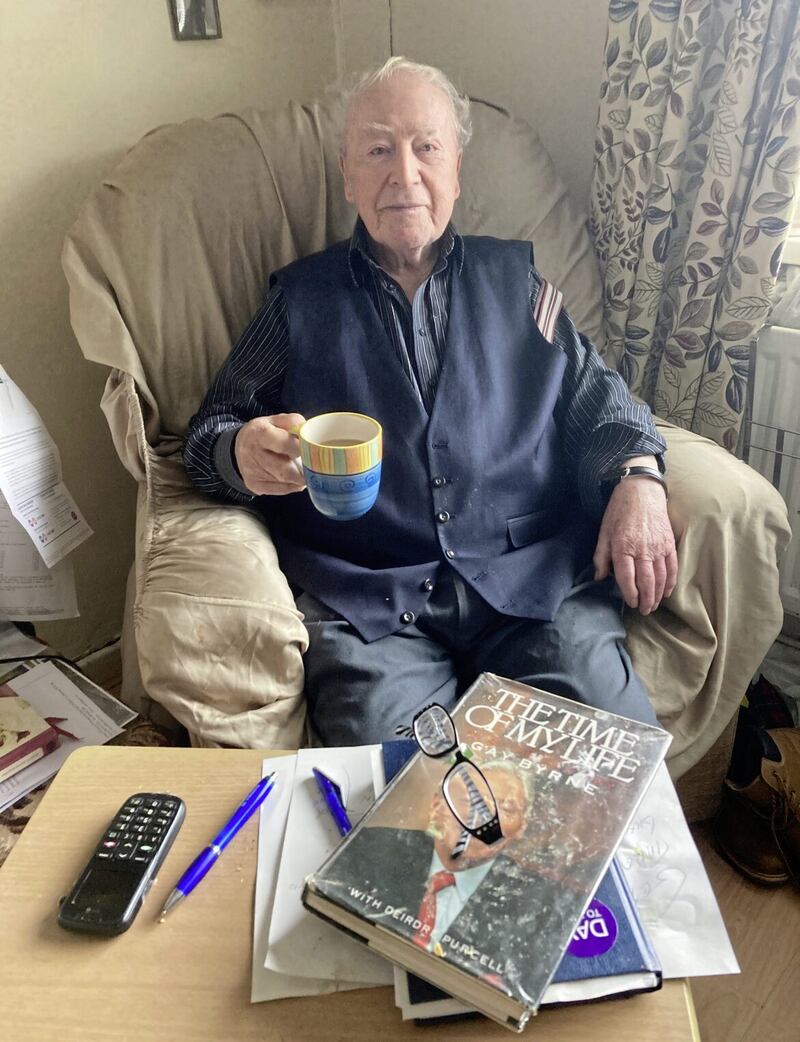
ON THE MOVE
Louis McConnell was very happy in Armagh, but yet again he was to be transferred.
"Monday morning, phone call: go to the Newry office. I said 'no' and was fired on the spot. That's when I first got involved in trade union business."
Today, he is the much respected and long-serving welfare officer of 46 years.
"But there was hope of a job. I was covering a council meeting in Armagh when a Belfast-based journalist asked me to file copy for him, admitting he was too drunk to attend and needed to get a piece in the following morning's paper."
From that encounter, he got an introduction to The Irish News and was interviewed by four formidable gentlemen.
"I was still very young and the editor said we'd like you to start next Monday, and this is the wage we'll pay."
Canny Louis said he'd think about it and would they write to him laying out their conditions.
"They did and I was delighted that they improved the salary offer," he explains.
Even at this time, reporters like Louis were supplementing their wage by writing for other papers, usually under an assumed name so they wouldn't be found out and lose their employment. Often, it paid off: "I got a job from The Financial Times Investors Chronicle for an review and got a cheque for £600."
He moved to The Belfast Telegraph where he was writing holiday and sports supplements, but there were strikes and the future was anything but secure. Fortunately, he'd been noticed by a travel magazine and was invited to work for them covering stories from all over the continent and beyond.
"It began with a phone call and a voice asked me could I be at Nutts Corner airport next day at 7am."
When he got there, he was shown to the VIP area.
"By 11am, I was in a £100 seat at Monaco Grand Prix, millionaires' yachts in the harbour and Champagne flowing. That was life in the days when newsprint was valued and Zoom had never been heard of."
As Louis beavers away collecting his archive material, I ask him how he'd like to be remembered.
"Just as a decent fella," he responds.
No problem, Louis.

